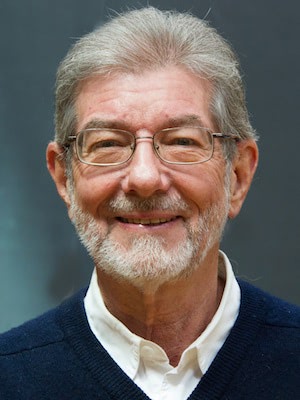- Undergraduate
Bachelor's Degrees
Bachelor of ArtsBachelor of EngineeringPartner School Dual-DegreeUndergraduate AdmissionsUndergraduate Experience
- Graduate
Doctoral Degrees
Doctor of PhilosophyPhD Innovation ProgramDoctor of Medicine-PhDGraduate AdmissionsGraduate Experience
- Research
- Entrepreneurship
- Community
- About
-
All Thayer News
Dartmouth Engineering Professor Awarded Fulbright Arctic Chair in Norway
May 29, 2013
The US-Norway Fulbright Foundation and the J. William Fulbright Foreign Scholarship Board (FFSB) has selected Erland Schulson, Dartmouth's George Austin Colligan Distinguished Professor of Engineering, Chair of the Engineering Sciences Department, and Director of the Ice Research Laboratory, for The Fulbright Arctic Chair in Norway.
The Arctic Chair is among the most prestigious appointments in the Fulbright Scholar Program. Available for researchers and lecturers in Arctic sciences, Arctic Chair grants send one Norwegian grantee to the US and one American grantee to Norway each year.
During the exchange, Professor Schulson will be studying the processes of fracture and friction of ice and the governing role they play in the interaction between natural features, such as sheets of sea ice and icebergs, and engineered structures that are used in the exploration and recovery of oil and gas from beneath Arctic waters. Of particular interest is the transition in the behavior of ice from ductile (D), or plastic-like, to brittle (B), or glass-like. This D/B transition marks the conditions under which the strength of a given ice feature reaches its maximum, thereby limiting ice-induced loads.
In addition, the award letter reads, "Developing international understanding requires a commitment on the part of Fulbright grantees to establish open communication and long-term cooperative relationships. In that way, Fulbrighters enrich the educational, political, economic, social and cultural lives of countries around the world...As a representative of your country in Norway, you will help fulfill the principal purpose of the Fulbright Program, which is to increase mutual understanding between the people of the United States and the people of the more than 150 countries that currently participate in the Fulbright Program."
Schulson received both his B.A.Sc. and Ph.D. in metallurgical engineering from the University of British Columbia. He has been a visiting senior research fellow at Oxford University, a visiting professor at the University of Grenoble, and a Fulbright Foreign Scholar at CNRS's Laboratoire de Glaciologie et Geophysique de l'Environnement. In 1978, he joined the faculty of Thayer School of Engineering at Dartmouth where he is the first George Austin Colligan Distinguished Professor of Engineering. Schulson was elected Fellow of ASM International and of TMS, and is a member of the American Geophysical Union and the International Glaciological Society. Schulson founded the Ice Research Laboratory at Dartmouth in 1983, and since then has served as its director. He teaches both undergraduate and graduate courses in materials science, mechanical behavior of solids and phase transformations, and continues to pursue research on the relationship between the structure and mechanical behavior of metals and ice. He has authored over 290 publications on physical/mechanical metallurgy and on ice mechanics, and holds or shares four patents relating to zirconium alloys and electron beam apparatus. He is a co-author of Creep and Fracture of Ice and is listed on highlycited.com.
The US-Norway Fulbright Foundation is located in Oslo and is responsible for the daily management of the Fulbright Program in Norway which works closely with cooperating agencies in the selection, supervision and administration of particular grantee categories. Each year, approximately 50 Norwegians receive grants to study, teach or conduct research in the US, and approximately 30 Americans receive grants to do the same in Norway. Since the start of the program in 1949, over 1,200 Americans and 3,300 Norwegians have been awarded a Fulbright grant. In addition, the Foundation offers an extensive counseling service for any Norwegians who would like to study in the US.
The FFSB is the Presidentially appointed 12-member Board that is responsible for establishing worldwide policies for the Fulbright Program and for selection of Fulbright recipients.
For contacts and other media information visit our Media Resources page.

